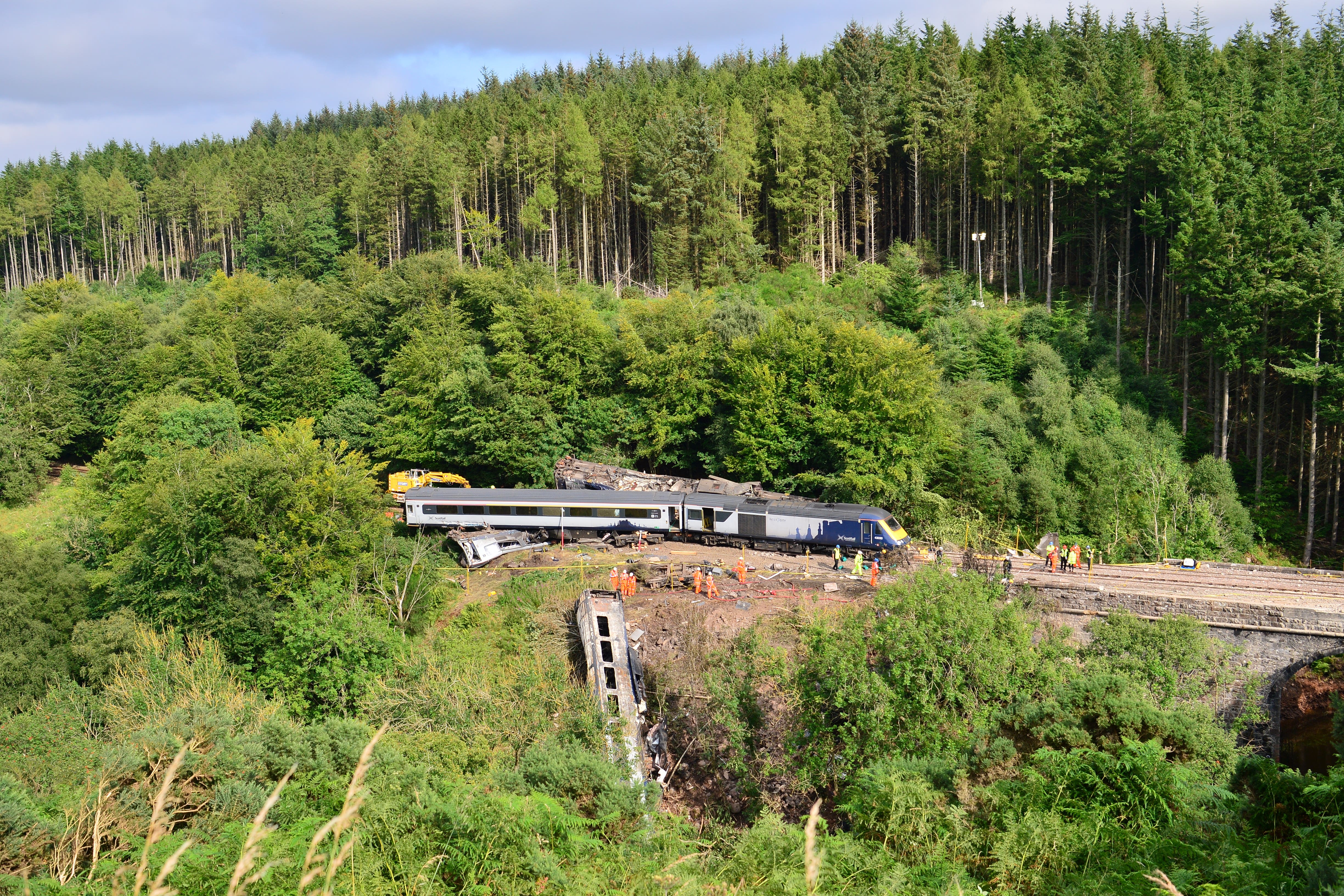Network Rail admits health and safety failings over fatal derailment
Three people died in the incident during bad weather near Stonehaven, Aberdeenshire, in August 2020.

Network Rail has admitted health and safety failings over a rail crash that claimed three lives.
Train driver Brett McCullough, 45, conductor Donald Dinnie, 58, and passenger Christopher Stuchbury, 62, died in the derailment near Stonehaven, Aberdeenshire, on August 12, 2020.
At the High Court in Aberdeen on Thursday, the company admitted a charge covering the period from May 1, 2011 to August 12, 2020.
It admitted it failed to ensure, so far as was reasonably practical, that railway workers not in its employment and members of the public travelling by train were not exposed to the “risk of serious injury and death from train derailment” as a result of failures in the construction, inspection and maintenance of drainage assets and in adverse and extreme weather planning.
Alex Prentice KC, prosecuting, told the court the weather had been “so significant” on the day the derailment took place that both Aberdeen City Council and Aberdeenshire Council declared a major emergency.
He said: “Network Rail co-operated fully with the investigation, and from the outset were clear that this case would result in a guilty plea.”
Mr Prentice said a trial would have been “considerable and complex”.
He told the court that recordings of a conversation between Mr McCullough and the Carmont area signaller prior to the crash confirmed the train driver queried whether there was a reduced speed limit in place on the line to Stonehaven.
The signaller told Mr McCullough: “Eh no, everything’s fine between myself and Stonehaven.”
The court heard that when Mr McCullough pulled the emergency brake, there was “insufficient time” for it to have any impact on the train’s speed.
The charge states that in particular, Network Rail failed to ensure, so far as was reasonably practicable, that a drainage asset located off-track of the Dundee to Aberdeen railway line near Stonehaven, constructed by Carillion between May 1, 2011 and December 31, 2012, was “constructed properly” and in accordance with the design drawings.
The charge also says Network Rail failed to conduct a handover meeting with the contractors to check the drainage asset had been properly constructed and built in accordance with the design.
Network Rail also admitted it did not have an adequate system of training and quality assurance in place in relation to the analysis of weather forecasts, which resulted in no emergency extreme weather action teleconference being held on the morning of August 12.
Court documents outline how there was a forecast of “extreme rainfall” and reports of severe weather, landslips and flooding in Aberdeenshire and the surrounding area on the day of the crash.
The charge states Network Rail failed to impose an emergency speed restriction “in absence of current information about the integrity of the railway line and drainage assets between Montrose and Stonehaven”, and failed to inform the driver that it was unsafe to drive the train at a speed of 75mph or caution him to reduce his speed.
The charge outlines how the drainage asset which had not been properly constructed failed, gravel was washed out from the drainage trench and on to the railway track, which the train struck, causing it to derail, decouple and strike a bridge parapet.
As well as the three deaths, a further six people were injured in the crash.
Network Rail admitted breaching two sections of the Health and Safety at Work etc Act 1974.
